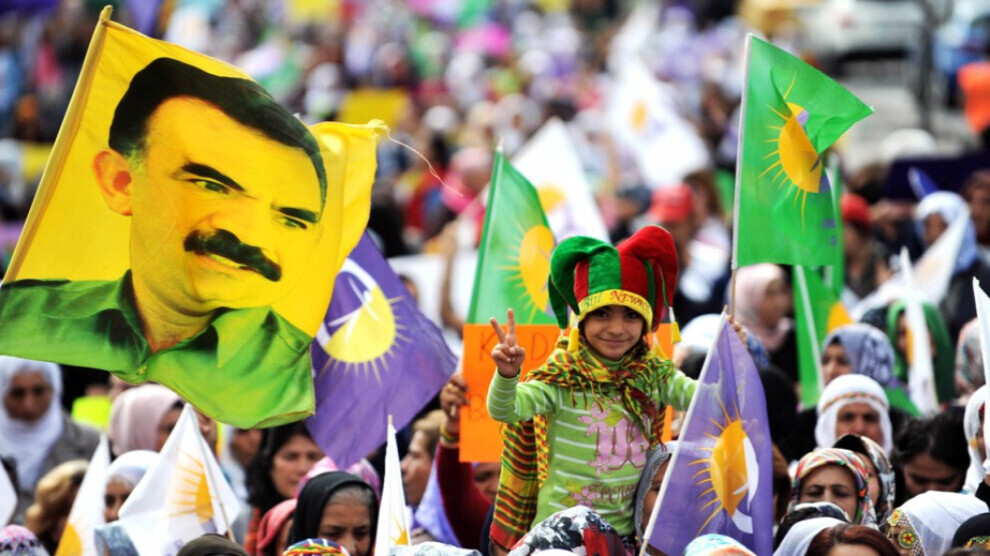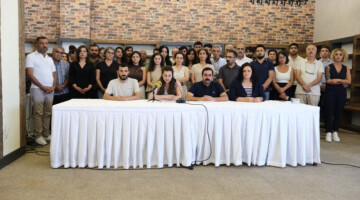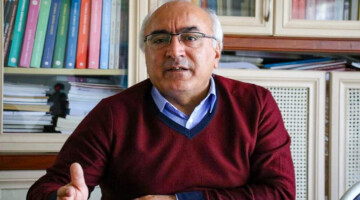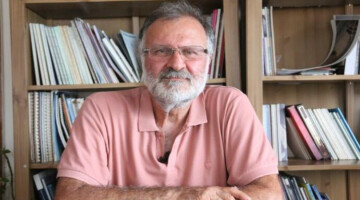On 5 April 2022, the Day of the Lawyers in Turkey, several lawyers’ organizations including Lawyers for Lawyers, addressed the European Committee for the Prevention of Torture and Inhuman or Degrading Treatment or Punishment (CPT) and requested that the CPT organizes a follow-up visit to İmralı Prison and in particular examines the government’s refusal to permit lawyers to visit their clients who are under isolation in İmralı Prison.
Lawyers for Lawyers released a statement denouncing the hindrances faced by the lawyers representing Öcalan, and called for an end to all interference through criminal prosecution or other means, of lawyers. The statement includes the following:
Lawyers from the law firm Asrın Hukuk Bürosu have been prevented from communicating with their clients for more than one year. This comes on top of other measures that have been taken in the past that severely hinder lawyers in exercising their professional activities.
Asrın Hukuk Bürosu represents Abdullah Öcalan, the leader of the Kurdistan Workers’ Party (PKK), who has been detained in İmralı F-Type High Security Prison since 1999. The firm also represents Ömer Hayri Konar, Hamili Yıldırım, and Veysi Aktaş, who are in the same prison since 2015. For over a year now, since 25 March 2021, it has been impossible for the lawyers of Asrın Hukuk Bürosu to communicate with their clients.
In 2011, 46 lawyers representing Abdullah Öcalan were arrested and have been prosecuted on terrorism-related charges ever since. Some of those lawyers have been in pre-trial detention for almost 2,5 years. Lawyers for Lawyers and many other international lawyers' organizations, who believe that the prosecution of these lawyers is linked to their professional activities, has been monitoring this case since 2012. The case is still ongoing.
Since 27 July 2011, the lawyers of Asrın Hukuk Bürosu have not been able to visit their client Abdullah Öcalan. The same applies to their clients Ömer Hayri Konar, Hamili Yıldırım, and Veysi Aktaş since they were transferred to İmralı F-Type High Security Prison in 2015. The ban on lawyer visits was continued for 8 years without any interruption until 2 May 2019. In 2019, 5 lawyer visits took place. After the last lawyer visit on 7 August 2019, the continuous ban resumed and applications for lawyer visits have not been granted. Other ways of communication were also very scarce. The last phone call that was allowed to any of the prisoners took place on 25 March 2021. This was a call, by Abdullah Öcalan, was cut short by prison authorities.
Moreover, lawyers from Asrin Hukuk Bürosu have also not been allowed access to files in the case since 2016, even though there is no official decision from a court that these should be kept a secret.
On 26 May 2021 a petition was published, signed by 768 lawyers, including members and executives of several bar associations, legal organizations, and human rights organizations, highlighting this situation.
Asrin Hukuk Bürosu has submitted several applications to international institutions asking them to intervene. The European Court on Human Rights (ECtHR) delivered two judgements concerning Öcalan’s case. In the first case, the court decided that the client had not had a fair trial, and that he should be tried again in a fair way. The authorities indicated that they would not do this since the client would receive the same sentence. The second decision was on a general application concerning sentencing for life in Turkey. In each case, the ECtHR found violations of the right to a fair trial or detention conditions relating to the access to lawyers.
On 5 April 2022, the Day of the Lawyers in Turkey, several lawyers’ organizations including Lawyers for Lawyers, addressed the European Committee for the Prevention of Torture and Inhuman or Degrading Treatment or Punishment (CPT) and requested that the CPT organizes a follow-up visit to İmralı Prison and in particular examines the government’s refusal to permit lawyers to visit their clients who are under isolation in İmralı Prison.
The aforementioned treatment of the Asrın Hukuk Bürosu lawyers and their clients is in contravention of the United Nations Basic Principles on the Role of Lawyers. In particular this concerns Basic Principles 8, 16 and 21.
Basic Principle 8 demands that “imprisoned persons shall be provided with adequate opportunities, time and facilities to be visited by and to communicate and consult with a lawyer, without delay, interception or censorship and in full confidentiality”.
Basic Principle 16 states governments must ensure that lawyers “are able to perform all of their professional functions without intimidation, hindrance or improper interference.” This Principle further requires that lawyers “are able to travel and to consult with their clients freely (…)”.
Basic Principle 21 states that “is the duty of the competent authorities to ensure lawyers access to appropriate information, files and documents in their possession or control in sufficient time to enable lawyers to provide effective legal assistance to their clients. Such access should be provided at the earliest appropriate time”.
In view of the above, Lawyers for Lawyers urges the Turkish authorities to:
- Provide the lawyers of Asrın Hukuk Bürosu and lawyers in general with adequate opportunities, time and facilities to visit and communicate with their clients, particularly those on Imrali Island, without delay, interception and in full confidentiality.
- Put an end to all interference through criminal prosecution or other means, of lawyers who assist their clients in accordance with professional duties, standards and ethics.
- Guarantee in all circumstances that lawyers are ensured access to appropriate information, files and documents within reasonable time, so they can provide effective legal assistance.
- Faithfully fulfil Turkey’s international treaty obligations, and comply with judgements of the ECtHR, in particular those guaranteeing access to lawyers.















